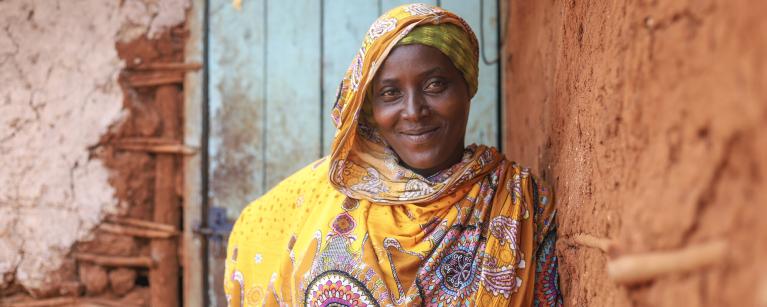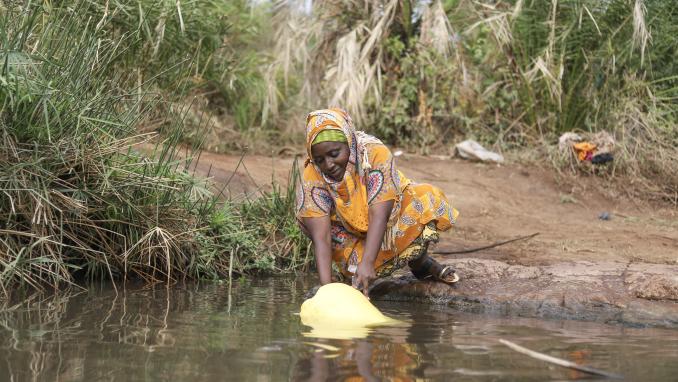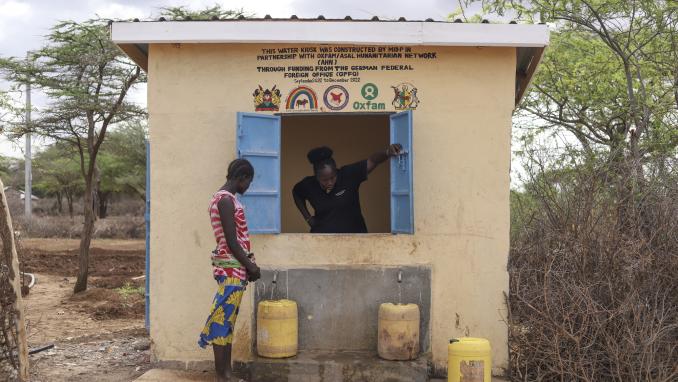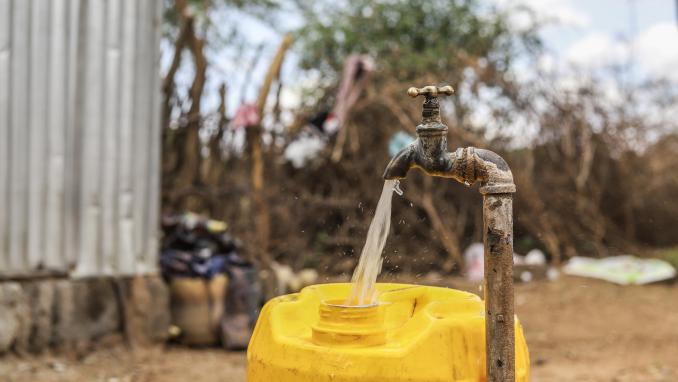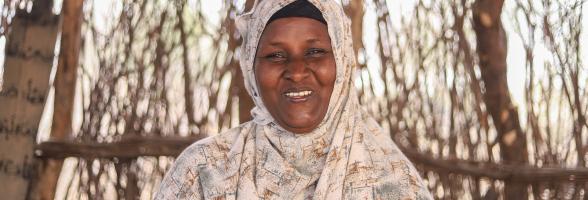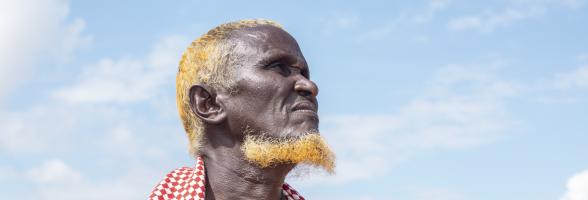Rapsu is a relatively quiet village. Situated in the remote northern region of Kenya, the most outstanding thing about the area is the stones; the area is full of many huge stones. One wonders if they have a story to tell. It is nicknamed ‘Kula mawe’ loosely translated to mean eat stones. Legends have it that the food and water scarcity in the area was so high that the community members in a cry for help insinuated they will eat the stones instead - hence the tag‘kula mawe’.
‘Kula mawe’, is where we meet Madina, a resident of Rapsu, a village in the area.
“We fetch water from the river. The water is extremely dirty, and we can barely drink it. When we do drink it, we suffer from serious diarrhea and other water related diseases. We walk for close to 20-30 Kms daily in search of suitable drinking water. It has been very difficult.”
Madina is a member of the water committee in Rapsu Village where the emergency drought response project is being implemented. She is also a participant of the non-food items of the project which include a 100-litre water tank, two 20kgs jerry cans, water treatment chemicals and reusable sanitary towels.
“The best thing that the team from Oxfam has done for us is install the water tanks and give us a solution for the dirty water. We look forward to free-flowing water in the area once the tank is completely fixed but for now, we are glad we can treat the water and store it.”
The emergency drought response project came to the rescue for these pastoralists. Implemented by Merti Integrated Development Program (MID-P) under Oxfam in Kenya and funded by the German Federation Foreign Office (GFFO), the project aimed at rehabilitating existing water borehole points. For the Rapsu Village, they rehabilitated a water tank and a water atm point, bringing it closer to the community members.
As a community they know that the only way to survive and grow is if they have enough water in their houses. That reduces the headache for most women who are really the backbone of the community. They can focus on other things involving the family.
“We used to spend half a day fetching water, leaving very little time for us to do anything else in the house. Now we hope that the water being so close to our homes means that we can have time for other things, like starting a small business that can increase our income. It is true when they say water is life.”
While the tank installation and piping work is yet to be completed, Madina wears an optimistic look, not bothered with the final days of her breaking back to ferry water on her from the distant downstream to her house. She is aware that it is just a matter of time, and she will be spending more time and energy on other productive work and not only the chores. We leave the village equally happy for Madina and wish her well in her stay in the village.
